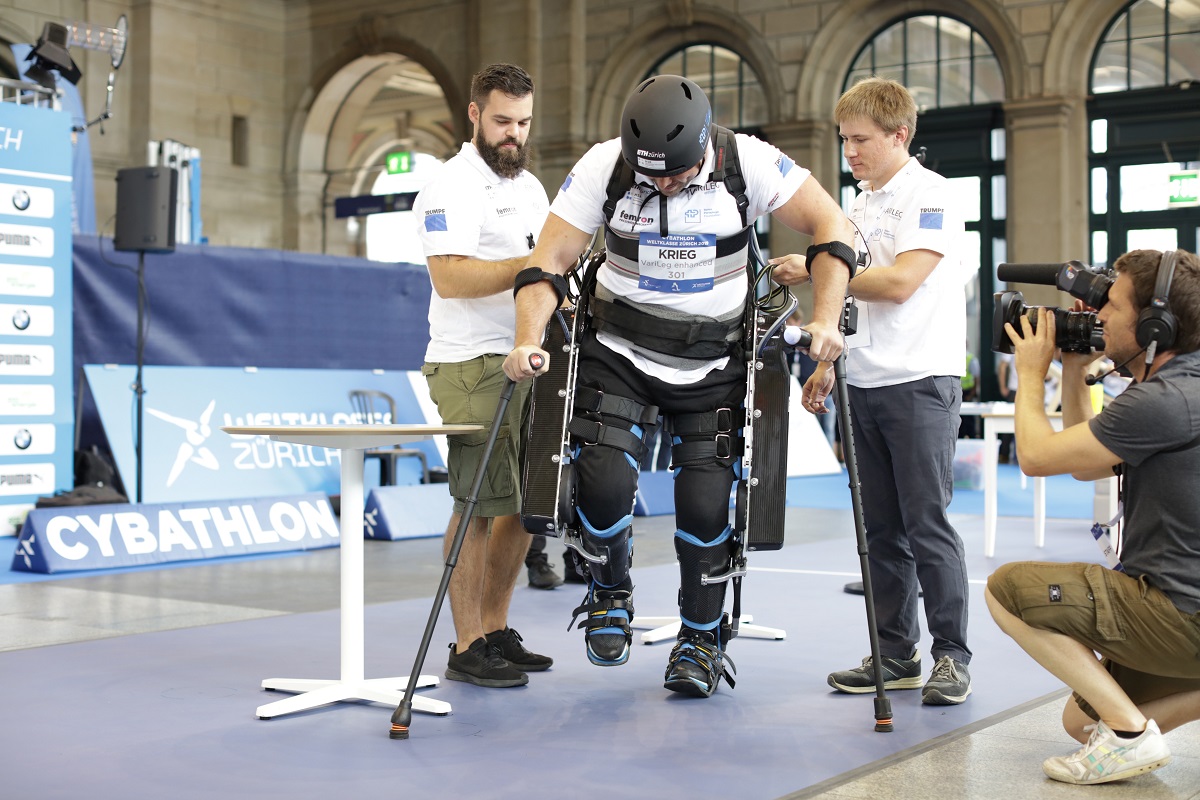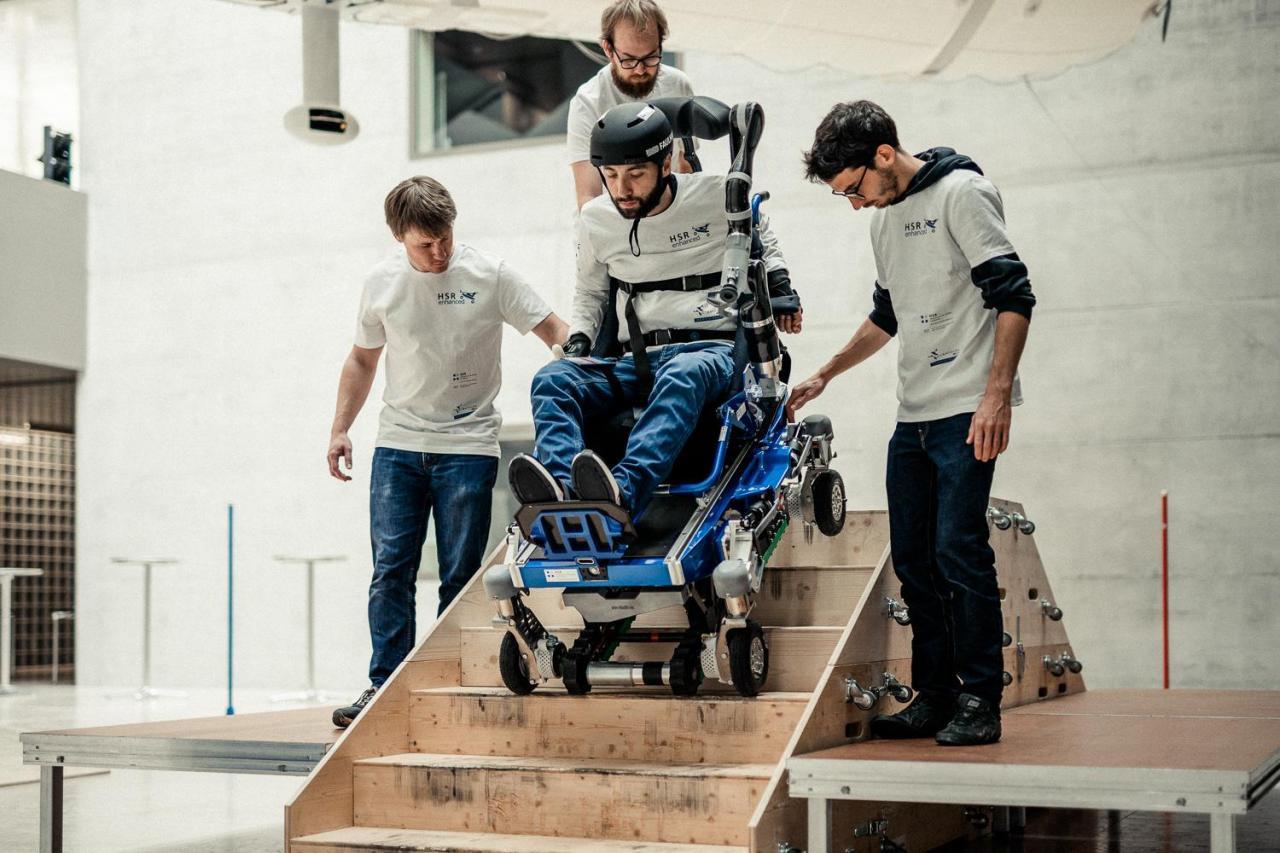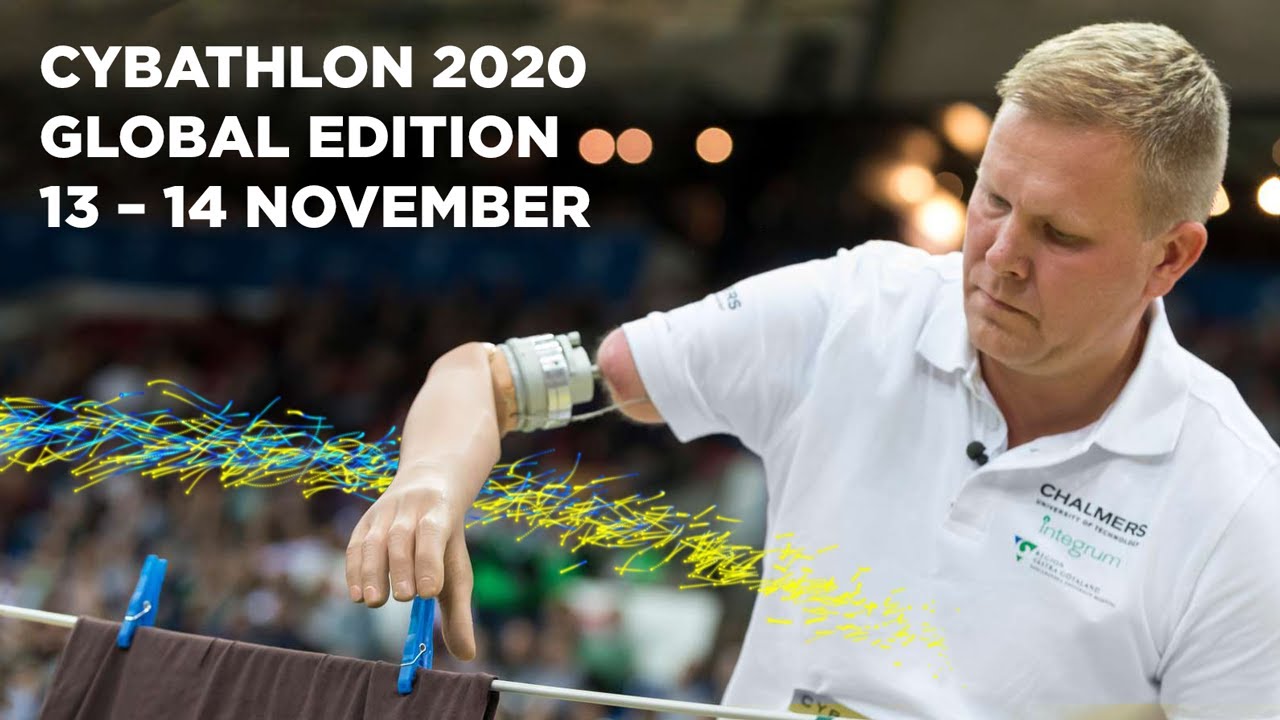After a successful first edition of the Cybathlon four years ago, the second instalment is due to take place on November 13 and 14. In the competition to decide the best assistance systems for people suffering from physical disabilities, teams from across the world will come together to test their technologies in an obstacle course. This year, due to the enforced lockdown in the region, it was not possible to hold the event at the SWISS Arena in Kloten in the canton of Zurich.
Nevertheless, the Cybathlon organizing committee developed a new format for the event: “Cybathlon 2020 Global Edition”. Around 60 teams and their respective pilots will be able to take part in the competition via broadcast. The organizing committee coordinates the processes and judging from Zurich. Despite the distance, the organization facilitates the transmission of an international competition featuring roughly 180 different races.
“The new concept certainly brought about a few challenges”, comments Roland Sigrist, Cybathlon Director. He adds: “The teams are spread across more than 20 different countries, which does not make it easy to organize the competition under the respective regulations in force”. However, Sigrist states that the actual competitive experience should largely remain the same for the participants.
Competition as a driver of innovation
The first Cybathlon event held four years ago saw excited spectators packed into a sold-out arena. The six disciplines were divided into races and courses; with leg and arm prostheses, motorized wheelchairs; cycling races with electrical muscle stimulation, exoskeletons and virtual races featuring mind control elements. “This type of competition promotes innovation and the performance of the individual teams – they will be taking part with the aim of showing the world how good they have become over the interim period”, explains Sigrist.
In addition to a handful of teams from industrial sectors, it is above all university teams and those from other institutions of higher education that are represented at the Cybathlon. This is also the case with the exoskeleton team VariLeg enhanced, a collaborative project between the Swiss Federal Institute of Technology in Zurich (ETH) and the Eastern Switzerland University of Applied Sciences (OST). “The cooperation between ETH and OST was extremely productive”, comments Christian Bermes, the team’s project leader. He believes that the combination of scientific strength on the part of ETH and the implementation expertise brought to the table by OST are the keys to success.

In addition to VariLeg enhanced, Bermes is also jointly responsible for the project HSR enhanced, which won a gold medal in the category of motorized wheelchairs in 2016. He will now be seeking to repeat his success from four years ago for both teams this time around. “We are ready to assist our pilots over the course of two optimal competition days”.

Greater Zurich transforming into “Robotic Valley”
Bermes has identified huge potential in the innovations showcased during the Cybathlon. The technologies developed for the event directly serve to help people achieve their goals. The solutions at the interface of technology and the users themselves can be integrated in our everyday lives on an ongoing basis, as shown by the SCEWO project for wheelchairs that can climb stairs. This product was first showcased at the original Cybathlon four years ago and was made available to the public for the first time this year.
Successes such as these are down to the strength of the innovation landscape. “Elite universities and their emerging start-ups are turning the Greater Zurich Area into “Robotic Valley”, an extremely attractive network for talent”, explains Bermes. As a flagship event for the region, the Cybathlon is ensuring that the focus is back on people. In addition to an innovative environment for drones and autonomous robots, there is increasingly space for assistance system technologies to emerge. Roland Sigrist is also optimistic with regard to this development: “I am overwhelmed by the effort our community is making”.
by Smilla Diener
Related news
Contact us
Can we put you in touch with a peer company or research institute? Do you need any information regarding your strategic expansion to Switzerland's technology and business center?
info@greaterzuricharea.com
